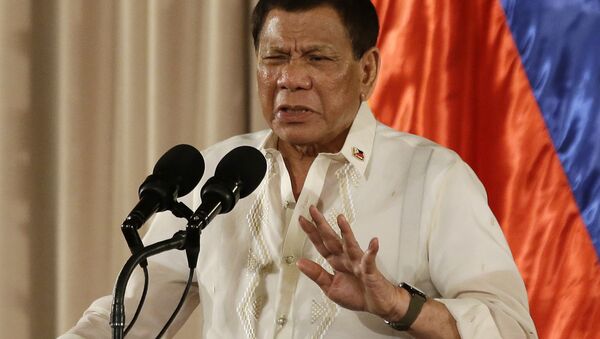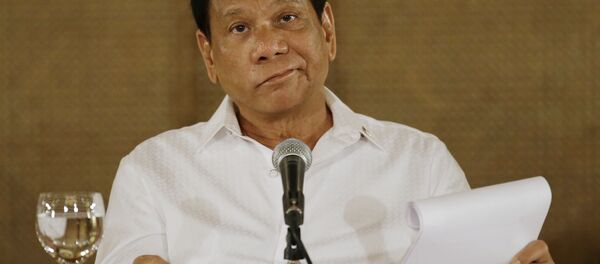The Philippines has summoned US ambassador Sung Kim over an American intelligence report that mentioned President Duterte as long as other threats in Cambodia, Myanmar and Thailand, according to Duterte's spokesman Harry Roque.
READ MORE: Ouch! Duterte Orders Philippine Soldiers to Shoot Female Rebels in Their Vaginas
Executive Secretary Salvador Medialdea discussed the global threat assessment with the envoy and asked the Philippines' diplomatic mission in the US to explain to Washington that President Duterte's was advancing economic development in the region while "respecting at all times the rule of law," the spokesman added.
"Autocratic tendencies" were mentioned in the US report, referring to Duterte's suggestions to establish a "revolutionary government" and impose nationwide martial law.
But spokesman Roque said in a statement that Duterte had not declared a revolutionary government nor nationwide martial law. Recently Duterte has decided to extend martial law in the southern part of the country through the end of 2018, as the Philippines are fighting against the Daesh-linked Maute terror group, which last year besieged the city of Marawi. In October 2017, the Philippine army liberated the city from the remaining militants and rescued all hostages.
READ MORE: Over 80,000 People Evacuated Due to Threat of Volcano Eruption in Philippines
Close relations between the US and the Philippines have deteriorated after Duterte came to power in the summer of 2016, as Duterte announced his intention to pivot the US former colony towards China and Russia after decades of strong ties with the US.
The then US President Barack Obama harshly criticized Manila's war on drugs, whereas Duterte called him a "son of a whore."
Both countries acknowledge that relations improved after the election of US President Donald Trump, who is more closely aligned to Duterte's law-and-order approach, but Duterte has continued to court foreign powers in trade and political agreements.



